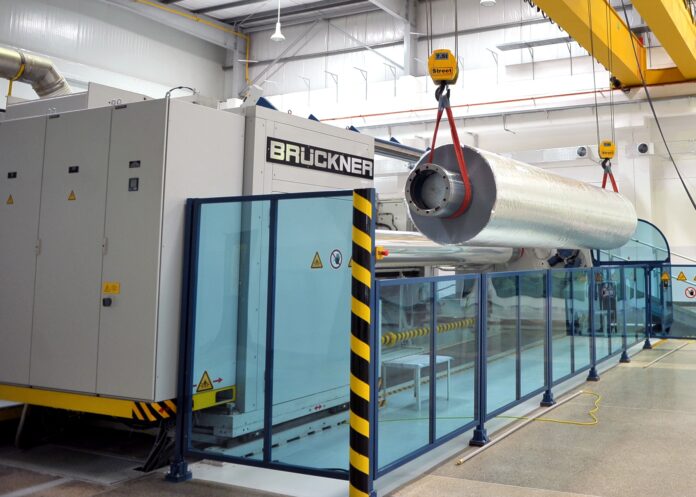The successful conglomerate is creating a Rs1.5 billion PVC plant.

At the risk of starting with a personal anecdote, this reporter would like to point out that they are old enough (or young enough, depending on how you look at it), to remember their very first school trip to the Candyland factory. The nice employees at the factory had given the children as much free candy as they wanted, which as you can imagine, meant an extremely over excited bus of school children.
But believe it or not, tactics like that worked and Candlyland, which had only started in 1988, very quickly became and still is a mainstay in school tuck shops and canteens across Pakistan. Its jingles have been seen by adoring children on channels like Cartoon Network, and the parent company, Ismail Industries, has done well off the back of that brand.
To add to all of these positives, it seems that demand is set to only grow further. On March 15, 2021, Ismail Industries announced that it was to set up a new polyester resin (PET resin) manufacturing plant, with an annual capacity of 108,000 tons. To do this, the parent company is going to invest Rs1.5 billion through equity in the subsidiary company Ismail Resin, through which the plant will be made. “This new manufacturing company will not only meet the local demand of PET Resin in Pakistan but would capture the global market as well,” the company said in its notice.
So, who are Ismail Industries? Technically, the origins of this family affair begin much earlier, around the time of independence, when one Haji Ahmed Chandia set up a factory in Sukkur. This did quite poorly, so in 1964, that factory was scrapped, and along with his four sons Chandia founded Union Biscuit Private (Ltd) in Karachi. This did quite well – up until a point that is. Chandia’s son and heir to his business, Mohammad Ismail, had an early death that shook the company which found itself floundering for a few years before completely falling apart by the 1980s.
However, the family’s business spirit had not died yet, and two of Ismail’s sons, Mohammad Ismail and Maqsood Ismail, decided to set up a brand new business called Ismail Industries in 1988. The third son joined the company in 1994 after finishing his PhD at Wharton and a short stint in the IMF, and the reader might recognise him as die-hard PML-N supporter and briefly the country’s finance minister in 2018, Miftah Ismail. Today, Mohammad Ismail is the chairman of the group, Maqsood Ismail is the CEO, and Miftah Ismail is an executive director.
The parent corporation has four major companies. The first is Candyland which was launched in 1990. It introduced soft jellies in Pakistan (think the classic Chilli Milli), along with other iconic brands like Fanty, Super Twister, and Paradise. The second is Bisconni, launched in 2002. This company offered perhaps the greatest addition to Pakistani cuisine: Cocomo ( with the popular tagline ‘Cocomo, mujhe bhi do’). It also introduced Rite, a knockoff of Oreo biscuits (before Oreo became more widely accessible in the country). The third company, SnackCity, was set up in 2006, and mostly manufacturer Kurleez (crisp packets). Ismail Industries exports its products to over 40 countries in Africa, Europe, and the Middle East.
Finally, the fourth company has nothing to do with food: Astro Films makes cast polypropylene (CPP) and bi-axially oriented polypropylene (BOPP). The Astro Films family comprises three brands: Astro Pack, Plastiflex Films Pvt. Limited, and Astro Plastics Pvt. Limited.
Both CPP and BOPP used in food and beverage applications like snack and confectionery are also used for lamination and bag making. BOPP is derived from polypropylene, which is the world’s second most used commodity plastic. The ‘biaxially-oriented’ part comes from the fact that the polypropylene is stretched flat in two directions. BOPP films can be white, metal-colored, or clear. That is why it is often used to make transparent labels for clear containers. The material is also waterproof, and non-toxic, which makes it very useful as bottle labels, jar labels, and canning labels. CPP film is also derived from polypropylene, but has gained some popularity over the more widely used BOPP because it has a soft film, and some small barrier property differences.
But now, Ismail Industries is focused on PET, also known as Polyethylene Terephthalate. It is a clear, strong and lightweight plastic which belongs to the polyester family. It is typically called “polyester” when used for fibers or fabrics, and “PET Resin” when used for bottles, jars, containers and packaging applications. Because it is shatterproof, and retains freshness, and is inert (ie.does not react with food products), it is very popular, and is most commonly used to package carbonated soft drinks and water.
So, is Ismail Industries considering branching into the drinks segment? It is not entirely far off: after all, its financials show that its sales have increased year-on-year, and it has not made a single loss after tax since 2004 (the last publically available figures). On the other hand, the company did have a rough 2020,: as it pointed out in its annual report: “The cost pressure on net profit is mainly sourced through overall high inflation, high energy cost & worsening rupee-dollar parity. Rise in prices of basic inputs due to sky-scraping food inflation, stiff competition, causing sizeable increase in marketing spent and other related factors has exorbitantly raised cost of doing business.” That may be true, but children (and plenty of adults) across the country are not going to stop buying candy and Cocomo. Perhaps a new business segment is due.
News Sources: Pakistan Today
